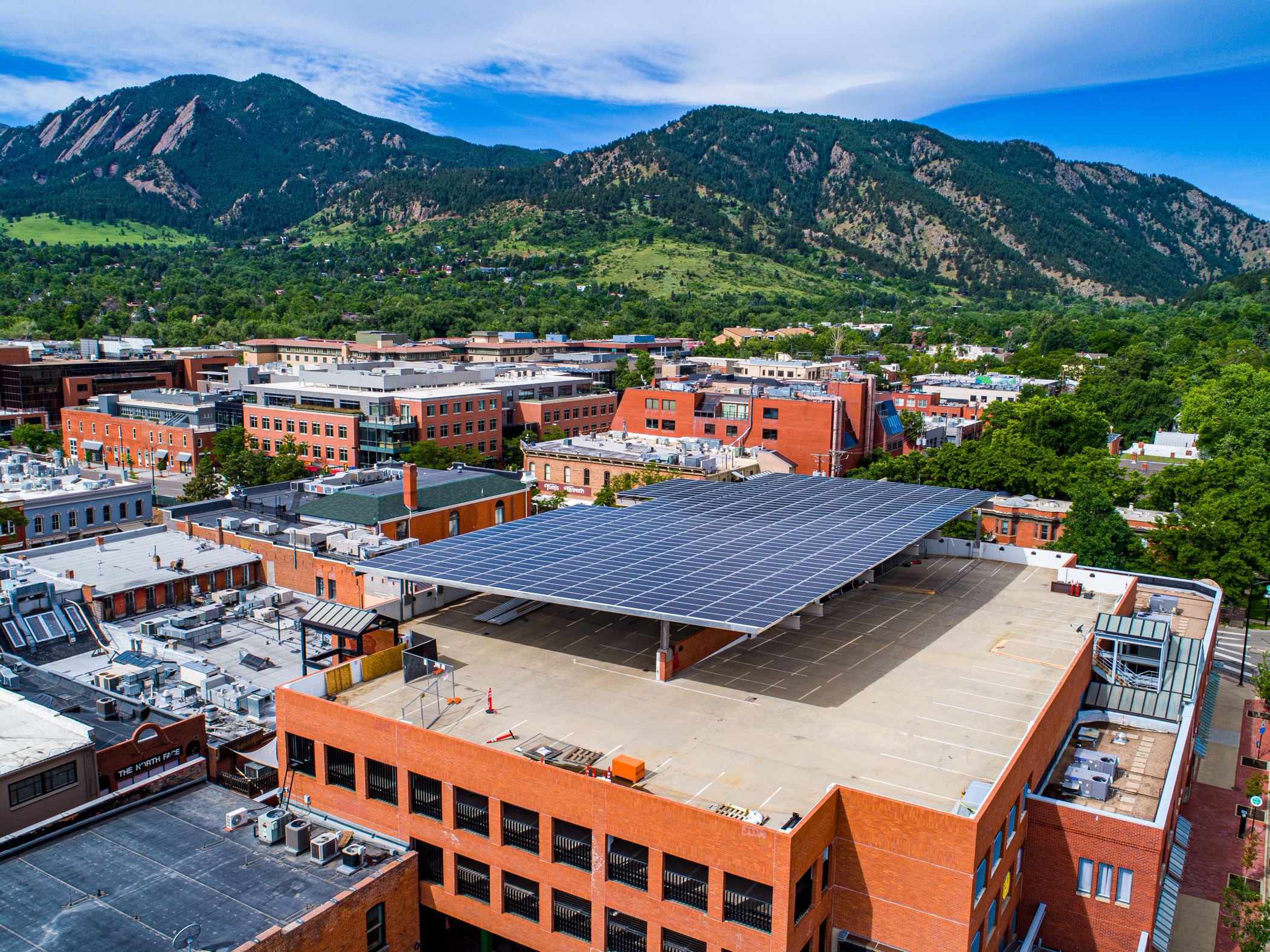The Access Management and Parking Strategy (AMPS) was developed to improve Boulder’s approach to multimodal access and parking management, and help evaluate access management policies and practices. AMPS is complementary to and reflective of numerous adopted plans and policies such as the Sustainability Framework, the Boulder Valley Comprehensive Plan, the Transportation Master Plan, the Economic Sustainability Strategy and the Climate Commitment.
What is Boulder's Access Management and Parking Strategy?

Continuously Improving Boulder’s Approach to Multimodal Access and Parking Management
Boulder is a recognized national leader in providing a variety of options for access, parking, and transportation. To support the community’s social, economic, and environmental goals, Boulder acknowledges the need to continuously innovate and prepare for a world that is rapidly changing.
Revitalized Parking & Transportation Access projects
2025
- Access Management and Parking Strategy (AMPS) Policy and Code Enhancements: updates to off-street parking standards, transportation demand management requirements and on-street parking management strategies. We brought forward the last few recommended updates from the Access Management and Parking Strategies (AMPS), an adopted policy of City Council since 2017. The changes complement on-street and off-street parking reforms and reimagine transportation demand strategies as part of AMPS: Boulder's guide to improving access across the city by increasing transportation options like walking, biking, busing and driving for people who live, work and recreate in our city.
2024
- The strategy sets different parking rates for on-street blocks depending on demand for that block and offers uniformly lower off-street parking pricing. New pricing took effect Jan. 2, 2024. On-street parking prices are updated based on an annual analysis of Boulder’s changing parking needs. Pricing is based on typical peak occupancy, with higher pricing for areas where parking is most in demand and lower pricing for areas where parking is least in demand.
- The Residential Access Management Program (RAMP) is continuing to evaluate parking in neighborhoods to determine prioritization for consideration of new, modified, or removal of management zones (NPPs).
- The city implemented recommendations from a 2023 evaluation of the Chautauqua Access Management Program (CAMP).
2023
- The Curbside Management Project developed policy guidance to manage competing demands on the curb as well as an Implementation Guidebook on how to make proactive and reactive changes to curbside uses.
- Performance-based pricing went into effect April 3, 2023.
Revitalized Parking & Transportation Access Guiding Principles
Provide for All Transportation Modes
Support a balance of all modes of access for a safe transportation system. Modes include pedestrian, bicycle, transit, and multiple forms of motorized vehicles—with pedestrians at the center.
Customize Tools by Area
Use a toolbox with a variety of programs, policies, and initiatives customized for the unique needs and character of Boulder’s diverse neighborhoods, both residential and commercial.
Support a Diversity of People
Address the transportation needs of different people at all ages, stages of life, and mobility levels—residents, employees, employers, seniors, business owners, students, and visitors.
Seek Solutions With Co-benefits
Find common ground and address trade offs between community character, economic vitality, and community well-being. Seek elegant solutions—those that achieve multiple objectives and have co-benefits.
Plan For the Present and Future
While focusing on today’s needs, develop solutions that address future demographic, economic, travel, and community design needs. Align with Boulder’s master plans, including the updated Transportation Master Plan, the Climate Commitment and Sustainability Framework.
Cultivate Partnerships
Be open to collaboration and public private partnerships to achieve desired outcomes.
Related Content
Chautauqua Access Management Plan (CAMP)
With Chautauqua Park being one of Boulder’s most in-demand places to visit, the Chautauqua Access Management Plan (CAMP) seeks to better manage access to the park while minimizing impacts to the neighborhood and the area’s natural and cultural resources. CAMP began in 2017 to manage parking demand at the historic Chautauqua Park and help minimize visitation impacts on the area.
The program includes paid and managed parking at Chautauqua, the seasonal Neighborhood Parking Permit program on several residential streets north of Chautauqua, free shuttles from remote parking lots and downtown Boulder, a park ambassador program, and employer transportation demand management programs.
CAMP is a partnership between the City of Boulder, the Boulder Valley School District, the University of Colorado, Visit Boulder, the Colorado Chautauqua Association, and Via Mobility Services.